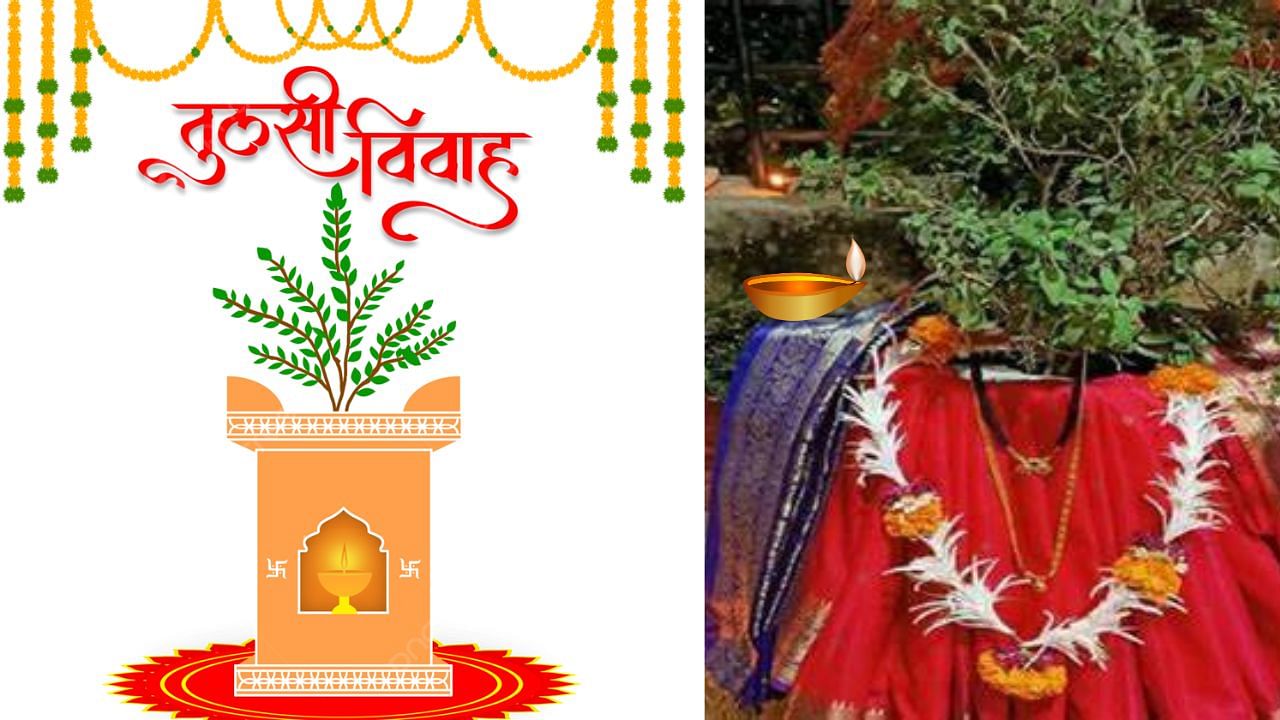
Tulsi Vivah stands out as a significant Hindu ritual, honouring the sacred union between the Tulsi plant and Lord Shaligram. This celebration and worship hold immense importance in Hindu households across the country.
According to tradition, every morning, the woman of the family tends to the Tulsi plant, while in the evening, she lights a diya and incense stick. Worshiping the Tulsi plant is believed to ward off evil from one's life. During Tulsi Vivah, the celebration of the Tulsi plant's union with Lord Shaligram is a symbolic quest for marital happiness and longevity.
Tulsi Vivah: Meaning
Tulsi Vivah is conducted to seek an ideal life partner, and it's believed that devoted puja can bless childless couples with children. Those without daughters may perform Kanyadaan, symbolically considering Goddess Tulsi as their daughter. The ritual is seen as a way to invoke blessings from deities for various aspects of family life.
Tulsi Vivah 2023: Date
Tulsi Vivah is observed on November 24 this year. According to Drik Panchang, it occurs on the Dwadashi Tithi of Shukla Paksha in the month of Kartik.
Tulsi Vivah 2023: Shubh Muhurat
The Dwadashi Tithi starts at 9:01 pm on November 23 and concludes at 7:06 pm on November 24. The auspicious time (Shubh Muhurat) for Tulsi Vivah is from 6:50 AM to 12:07 AM on November 24.
Tulsi Vivah 2023: Rituals and Celebrations
Here are some rituals and celebrations that occur during Tulsi Vivah:
-
The Tulsi plant is treated like a bride during wedding preparations, adorned with flowers, turmeric, and vermilion (kumkum).
-
The surroundings of the Tulsi plant are cleaned, and rangoli is used for decoration. Diyas are also lit around the plant.
-
The ceremony starts with the chanting of prayers and hymns.
-
Symbolically, the Tulsi plant is given in marriage to Lord Vishnu or Krishna, with the person conducting the ritual representing a father giving away his daughter in a traditional Hindu wedding.
-
To signify its marital status, a sacred thread or necklace is tied around the Tulsi plant.
-
Following the marriage ceremony, a feast is organized, and attendees receive prasad (sacred food offering).
-
Devotees believe that witnessing the Tulsi Vivah brings merit and helps cleanse them of sins.
Also Read: Nitin Gadkari to be the Chief Guest for 'MFOI Awards 2023'; Flag Off 'MFOI Kisan Bharat Yatra'
















